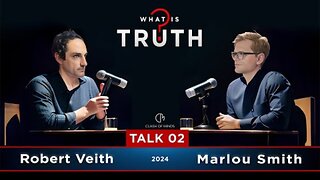King James Version Bible versus Geneva Bible 1560
#kjv #genevabible #kjvversusgenevabible
King James Version Bible versus Geneva Bible 1560
@jon.truth
Order the Geneva Bible 1560 - Click on the link - https://amzn.to/3TJSrA3
The Geneva Bible followed the Great Bible of 1539, the first authorized Bible in English, which was the authorized Bible of the Church of England.
During the reign of Queen Mary I of England (1553–1558), because Mary I was Catholic, a number of Protestant scholars fled from England to Geneva, Switzerland, which was then ruled as a republic in which John Calvin and, later, Theodore Beza, provided the primary spiritual and theological leadership. Among these scholars was William Whittingham, who supervised the translation now known as the Geneva Bible, in collaboration with Myles Coverdale, Christopher Goodman, Anthony Gilby, Thomas Sampson, and William Cole; several of this group later became prominent figures in the Vestments controversy. Whittingham was directly responsible for the New Testament, which was complete and published in 1557,[6] while Gilby oversaw the Old Testament.
Sir Rowland Hill
Soulton Hall, Hill's House in Shropshire
Sir Rowland Hill, publisher of the Geneva Bible, and his residence in Shropshire
The first full edition of this Bible, with a further revised New Testament, appeared in 1560,[6] and was published by Sir Rowland Hill of Soulton,[7][8][9][10][11] but it was not printed in England until 1575 (New Testament[6]) and 1576 (complete Bible[6]). Over 150 editions were issued; the last probably in 1644.[6] The first Bible printed in Scotland was a Geneva Bible, which was first issued in 1579.[6] In fact, the involvement of Knox (1514–1572) and Calvin (1509–1564) in the creation of the Geneva Bible made it especially appealing in Scotland, where a law was passed in 1579 requiring every household of sufficient means to buy a copy.[12]
Some editions from 1576 onwards[6] included Laurence Tomson's revisions of the New Testament. Some editions from 1599 onwards[6] used a new "Junius" version of the Book of Revelation, in which the notes were translated from a new Latin commentary by Franciscus Junius.
The annotations which are an important part of the Geneva Bible were Calvinist and Puritan in character, and as such they were disliked by the ruling pro-government Anglicans of the Church of England, as well as King James I, who commissioned the "Authorized Version", or King James Bible, in order to replace it. The Geneva Bible had also motivated the earlier production of the Bishops' Bible under Elizabeth I, for the same reason, and the later Rheims–Douai edition by the Catholic community. The Geneva Bible remained popular among Puritans and remained in widespread use until after the English Civil War. The Geneva notes were surprisingly included in a few editions of the King James version, even as late as 1715.[6]
Benjamin Franklin is understood to have been inspired by the frontispiece of the Geneva Bible in his design proposal for the first Great Seal of the United States.[13]
-
 1:07:21
1:07:21
Present Truth
26 days ago02 What Is Truth? Can The Bible Be Trusted by Robert Veith & Marlou Smith
1452 -
 LIVE
LIVE
WeAreChange
2 hours agoTIM's ON THE LIST! Ukraine's New American Target Lists Surface!
3,557 watching -
 2:04:25
2:04:25
The Quartering
4 hours agoAmerican Flags Banned In Gym, Hot Dog Champion Gets Woke, Based NBA Coach & Woke Gaming Meltdown
25.7K6 -
 1:18:21
1:18:21
Redacted News
5 hours agoRussia LAUNCHES Nuclear War Game Exercises on U.S. Doorstep, Hunter found guilty | Redacted Live
86.5K308 -
 2:02:37
2:02:37
Revenge of the Cis
5 hours agoEpisode 1356: The House Always Wins
43K9 -
 1:02:33
1:02:33
In The Litter Box w/ Jewels & Catturd
23 hours agoDems Crash & Burn | In the Litter Box w/ Jewels & Catturd - Ep. 584 - 6/11/2024
63.8K31 -
 1:05:08
1:05:08
Barstool Chicago
5 hours agoThe Mid Show LIVE | Tuesday, June 11, 2024
42.5K3 -
 1:12:57
1:12:57
Awaken With JP
7 hours agoTruth Conquers - LIES Ep. 44
84.1K69 -
 1:59:03
1:59:03
Matt Kim
7 hours agoDoes America Need God? w/ Pastor Doug Wilson | Matt Kim #098
55.8K13 -
 42:53
42:53
Standpoint with Gabe Groisman
7 hours agoEp. 29. Lawfare in the 2024 Elections with Josh Hammer
57.3K8